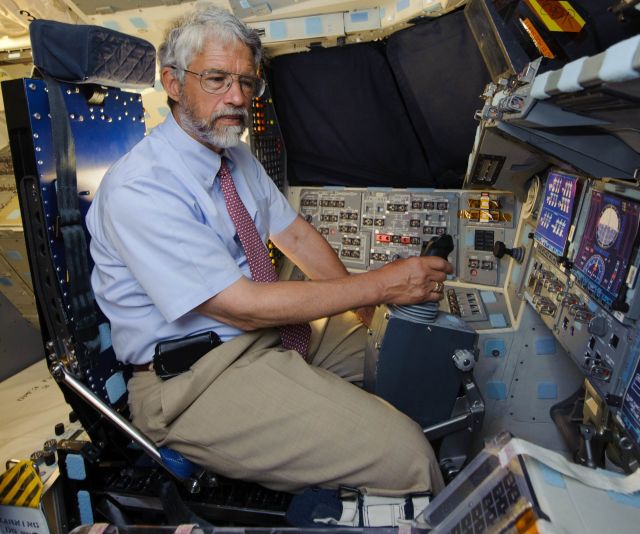Juno was a success—but there is precious little coming after it

John Holdren, President Obama's science advisor, sits in the commander's chair of space shuttle Discovery in 2011. (credit: NASA)
Juno's insertion into orbit around Jupiter on July 4th made the US proud of its space agency, and NASA's planetary exploration program has certainly had a nice run during the last year. New Horizons revealed Pluto, and now a spacecraft will soon deliver new insights about the Solar System's largest planet.
But the party is just about over. NASA, and more particularly the Obama administration, have failed to invest in future planetary science missions. Earlier this year, I had a chance to catch up with Casey Dreier, director of space policy for The Planetary Society, which as its name implies advocates for increased exploration of the Solar System. Although generally an ally to the science-minded Obama administration-the society's chief executive Bill Nye often hobnobs with the president-Dreier did not mince words about the The Planetary Society's views.
"I think with President Obama you have a legacy of a missed opportunity to really build on the foundation that he inherited, which was a fleet of spacecraft from Mercury going out to Pluto," Dreier told me. "He had an opportunity to build political bridges. There's a very high level of bipartisan support for that, and a huge amount of public engagement."
Read 10 remaining paragraphs | Comments